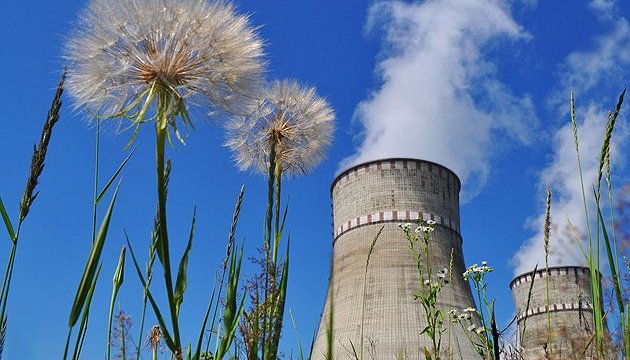UDC621.039.586:504.064.36 • Issue 7 (35) / 2022 • 98-102 pages
https://doi.org/10.32782/geotech2022.35.19
Barbashev S.V., Nazaryshyn V.S.
Barbashev S.V., D. Sc. (Eng.), Professor of the NPP Department, Odessa Polytechnic National University, ORCID 0000-0001-5446-153X, josik65@gmail.com, barbashev@op.edu.ua
Nazaryshyn V.S., Master’s degree in Nuclear Energy, Odessa Polytechnic National University, volodimirnazarisin@gmail.com
Abstract
During the Chornobyl accident, the near accident area (10-30 km) was heavily contaminated with radioactive substances, of which approximately 1.5% of the total activity of emitted radionuclides belongs to the fuel component, which includes transuranic elements, such as 239,240 Pu and 241Am. Radiogenic 239Pu and 240Pu formed in a nuclear reactor are characterized by a very long half-life and high carcinogenicity and therefore, if released into the environment, will pose a serious risk of radiological exposure to humans for many years. 241Am is the main dose-forming Chornobyl radionuclide, which due to the difference in the half-lives of 241Pu (14 years) and 241Am (432 years) is observed over time with increasing activity in the environment. The maximum content of 241Am in the environment will be reached 73 years after the accident and will be 40 times higher than its emergency release into the atmosphere in 1986. Eventually, 241Am will be the most significant of the other Chornobyl radionuclides, albeit with little activity. These facts will cause environmental hazards of 239,240 Pu and 241Am for a long time and the relevance of the study of their behaviour in the environment. This paper examines the behavioural characteristics of 239,240 Pu and 241Am of Chornobyl origin in the environment, obtained during a comprehensive radioecological monitoring in the area of the Chornobyl NPP after the accident. The main purpose of the work is to substantiate the proposal for long-term study and forecasting of the radiation situation in the area around the Chornobyl nuclear power plant, which is formed by transuranic elements, including 239,240 Pu and 241Am, using radioecological monitoring methodology.
Key words: Chornobyl accident, transuranic elements, 239,240Pu, 241Am, environment, radioecological monitoring
Article
Reference
- Barbashev, V. (2009), The system of complex ecological monitoring of Ukraine NPP location. (Doctoral dissertation). Odessa National Polytechnic Institute, Odessa [in Russian].
- Diachuk, A., Prister, B.S. et al. (1990), Guidelines forintegrated (radiological, chemical) monitoring of soils and landscapesinthe vicinity of nuclear powerplants. Leningrad, 239-249 [in Russian].
- Environmental consequences of the accident at the Chernobyl nuclear power plant and their overcoming: twenty years of experience of the Vienna, 2008, 199 p. URL: https://www-pub.iaea.org/ MTCD/publications/PDF/Pub1239r_web.pdf. [in Russian].
- Gurachevsky, L. (2017), On the radiation situation in Belarus after the Chernobyl accident (according to 2016 data). Minsk: 302-308. [in Russian] URL: https://rep.bsatu.by/bitstream/ doc/1570/1/Gurachevskij-V-L-O-radiacionnoj-obstanovke.pdf
- Ivanov, A., Ramzina, T.V., Khamyanov, L.P., Vasilchenko, V.N., Korotkov, V.T., Nosovsky, A.V., Oskolkov, B.Ya. (1994), Radioactive contamination of the environment with 241Am due to the accident at the Chernobyl nuclear power plant. Atomnaya energiya, 77, (2): 140-145. URL: http://elib.biblioatom.ru/text/atomnaya- energiya_t77-2_1994/go,56/ [in Russian].
- Izrajel’, A. (2006), Radioactive contamination of natural environments as a result of the accident at the Chernobyl nuclear power plant. Moscow.: Komtekhprint. URL: http://www.ibrae.ac.ru/ images/stories/ibrae/chernobyl/israel.pdf [in Russian].
- Metelsky, W. (2021). Chernobyl – the largest nuclear disaster in the history of mankind]. Portal Polskiego radia SA. URL: https:// www.polskieradio.pl/397/7836/Artykul/2723663 [in Russian].
- Plotnikov, A. (2007), Detection of americium-241inthenaturalenvironmentofthePenzaregio].IzvestiyaPGPU No. 3 (7): 307-308. URL: https://cyberleninka.ru/article/n/obnaruzhenie- ameritsiya241-v-prirodnoy-srede-penzenskogo-regiona [in Russian].
- Consequences of exposure to human health as a result of the Chernobyl (2012). URL: https://www.unscear.org/docs/ reports/2008/12-55525_Report_2008_Annex_D_RUSSIAN.pdf [in Russian].
- Forecast of pollution of Ukraine by Americium-241 in URL: http://chornobyl.in.ua/karta-radionulid-ukraine.html [in Ukrainian].
- Sources and effects of ionizing United Nations Scientific Committee on the Effects of Atomic Radiation. (2000), UNSCEAR 2000 Report to the General Assembly with Scientific Annexes,V.II: Effects. United Nations New York, 451-566. URL: https://www.unscear.org/docs/publications/2000/UNSCEAR_2000_ Annex-J.pdf.
- Contamination of the near 30-km zone of the Chernobyl nuclear power plant with 241Am fuel URL: http://dazv. gov.ua/dostup-do-publichnoji-informatsiji/karty-radiatsiinoho- zabrudnennia-zony-vidchuzhennia.html/ [in Ukrainian].
